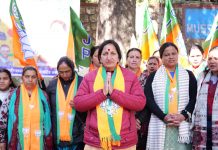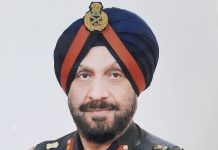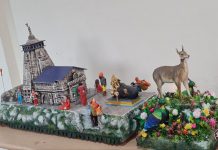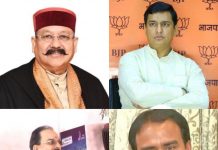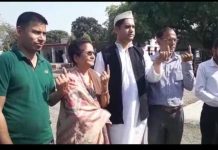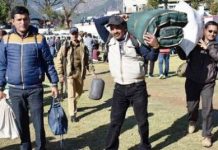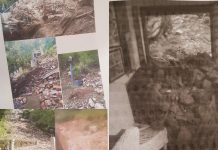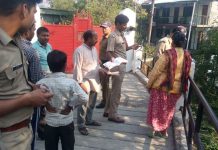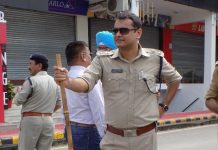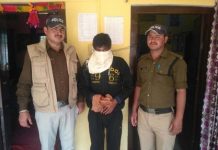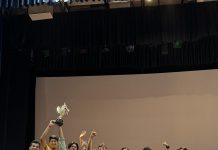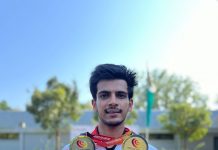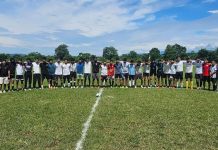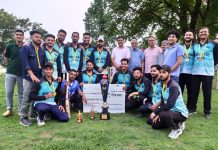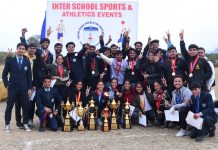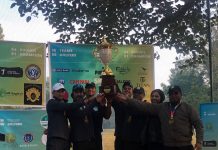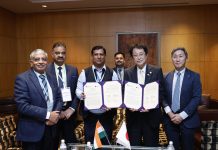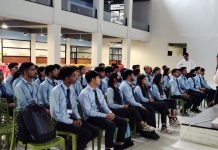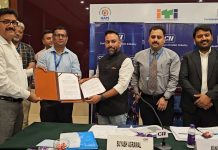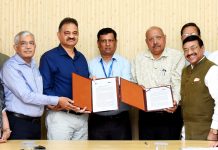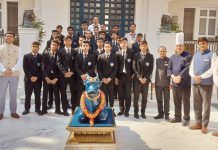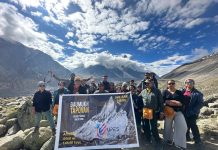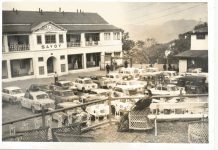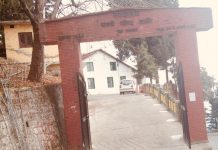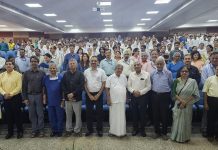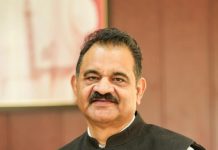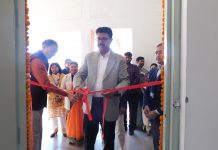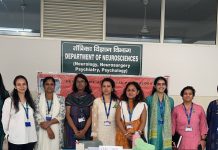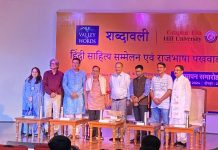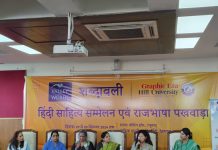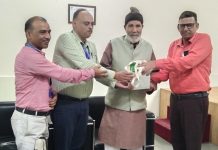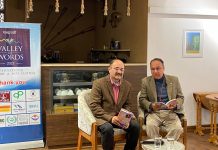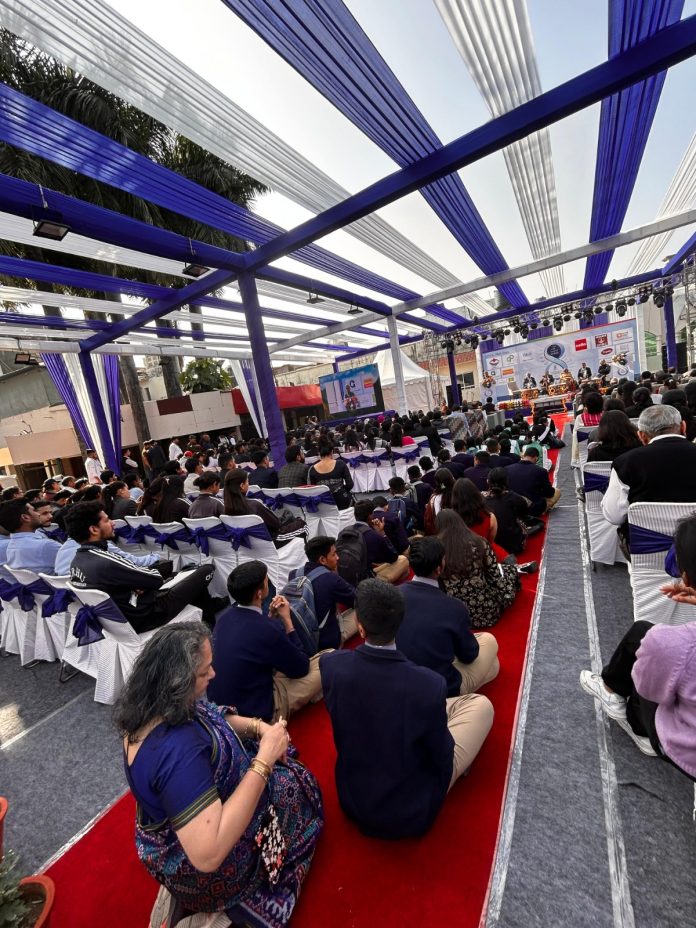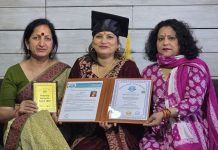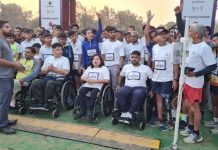Dateline Dehradun: On 16th November 2024, the eighth edition of the Valley of Words (VoW) Literary Festival 2024 opened to an enthusiastic audience at Hotel Madhuban, Dehradun. The festival, renowned for bridging literature, art, and culture, unfolded its vision of inclusivity, continuity, and innovation, drawing a diverse audience of authors, scholars, students, and enthusiasts.
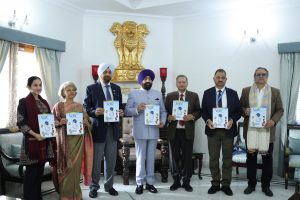
The inaugural ceremony featured a message from the Hon’ble Governor of Uttarakhand, Lt. Gen. Gurmit Singh (Retd.), who set the tone for the two-day festival. Reflecting on the festival’s growth and its cultural significance, he stated, “First of all, my heartiest congratulations to the entire VoW Team. I would like to congratulate them on the launch of their magazine VoWel, a word that rhymes with Jewel and has been polished with thoughts, words, and feelings.” Highlighting the scale and impact of the event, he added, “The digit 8 itself is a divine letter by itself—50 sessions planned, 75 authors, 12 book launches, and 6 exhibitions—what a beautiful initiative! I found a distinct vibration in the last few editions I have attended.”
A special patriotic dance by students of the Bajaj Institute of Learning for the Deaf followed the Governor’s address. Their performance, blending synchronized choreography with artistic grace, transcended barriers of language and disability to convey a powerful message of national pride and unity, leaving the audience deeply moved and inspired.
The festival’s signature Lead@VoW initiative brought students from eight schools in Dehradun, including Doon International School, Jaswant Modern School, KV IMA, St. Kabeer Academy, Himjyoti School, and Mount Fort Academy, into dialogue with key institutions like the Survey of India, National Hydrographic Office, Forest Research Institute, Wadia Institute of Himalayan Geology, Swami Ram Himalayan University, Kala Kendra, and Wildlife Institute of India.
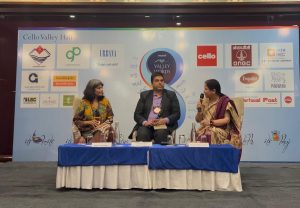
These sessions explored career opportunities, the evolution of scientific thought, and the role of these institutions in shaping a progressive India. The “Bharat: Borders and Bluewater” session, chaired by Lt. Gen. PJS Pannu, delved into India’s maritime strategies and territorial borders, with Commodore Hardas, Sanjeev Chopra, and Jyoti Dhawan providing insights into geopolitical and cultural dimensions. Another engaging session, “All Things Bright and Beautiful,” chaired by M.C. Ghildiyal, celebrated biodiversity and conservation, with contributions from Vijaya Ratre and Virendra Tiwari from FRI and Wildlife Institute of India respectively.
Among the highlights was the Nukkad Naatak, performed by the Aaina Theatre Club in collaboration with Graphic Era Hill University. The performance delivered a powerful message of social change and community empowerment.
The festival also hosted several VoW Awardee sessions, including Ambar Pariyan (Hindi Translation from Punjabi), translated by Subhash Neerav, and discussed by Someshwar Pandeya and chaired by Indrajeet Singh. Another session featured Manoj Mitta’s Caste Pride: Battles for Equality in Hindu India, with a compelling discussion with Badri Narayan led by Raja Sekhar Vundru. In the English Fiction category, Smriti Ravindra’s The Woman Who Climbed Trees was the focus of an engaging dialogue with Atul K. Thakur as the lead discussant.
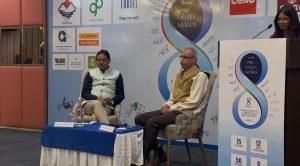
A notable discussion on the UCC in Uttarakhand explored its implications for the state. Moderated by Yogesh Kumar, the session featured panellists Surekha Dangwal, Manoj Mitta, Badri Narayan, and Mufti Shamoon Qasmi, Chairman UMEB. Another session, The Legend of Doon, offered a rich narrative on Rash Behari Bose, presented by Tarun Vijay and chaired by N Ravi Shanker.
The Candid Conversation series provided further thought-provoking discussions. In A Touch of Salt, author Anita Agnihotri engaged with lead discussant N Ravi Shanker, moderated by Anjum Katyal, while Beyond Biryani featured a dialogue with author Dinesh C Sharma and lead discussant Manoj Mitta. Adding a regional flavour, Stories of the Hills took the audience on a journey through Uttarakhand’s museums, with insights from Lady Kishwar Desai and moderated by Anjali Bhartari Ravi.
In Candid Conversation, the Turkish Ambassador to India, Firat Sunel, shared his perspectives on cultural resilience through the lens of his novel The Lighthouse Family, in conversation with Ratna Manucha. The discussion resonated deeply with attendees, especially those from Partition families, highlighting the enduring bonds of cultural heritage despite geopolitical shifts.
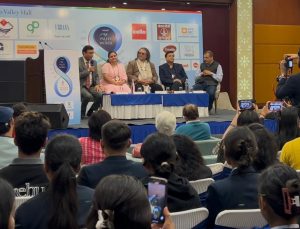
The day also examined the challenges of traditional media in the session Present Tense and Imperfect Future of Offline Media. Moderated by Navneet Gairola and chaired by Sanjay Jasola, the session included discussions by Satish Sharma, Sanjay Abhigyan, and Ankita Uniyal.
The evening Mushaira brought together poets like Popular Meeruthi, Waris Warsi, Shubham Tyagi, and Amber Kharbanda, moderated by RK Bakshi and chaired by S Farooq who mesmerized the audience with their eloquent verses blending tradition and modernity.
The first book launch “Hug Yourself: Body Positivity & Empowerment Stories for Teenagers” with lead discussants as Ratna Manucha and Vibha Batra and chaired by Veena Krishnan. Author Mona Verma’s “The Scent of Himalayas: Stories from the Mystical Mountains”, was discussed by Pooja Marwah with the Chair as Manoj Barthwal. Deepanjali Singh discussed and Ira Chauhan chaired Bijoya Sawian’s “Hill Songs of Love and Longing.” Author Shalini Sawkar’s “Confessions of an IT Employee” was discussed by Sarishma Dangi and Prateek Jain. Indrajeet Singh’s “Bharat Kay Pushkin-Shailendra” was discussed by Mamta Kiran and chaired by Prof Manmohan Chaddha. Iqbal Chandra Malhotra’s “The Nukes, The Jihad, The Hawalas and Crystal Meth” was discussed by Lead Discussant Srishtee Sethi and Chaired by Lt Gen Pannu. Themes ranged from folklore and resilience in the Himalayas to humorous reflections on modern corporate life.
The session chaired by Col. Anupam Suden, explored the preservation of India’s archaeological heritage, with Manoj Saxena presenting invaluable insights into antiquities and their cultural significance.
The day also included an engaging panel titled “Cities of the Future,” curated by Ashish Srivastava, Avinash Chandra Joshi and moderated by Anoop Nautiyal. Experts discussed the challenges and opportunities of urbanization, emphasizing the need for sustainable development and innovative urban planning.
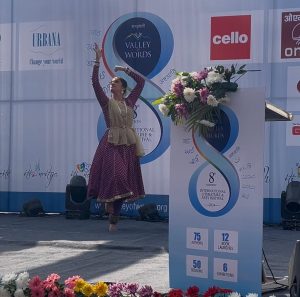
Cultural Performances were a highlight of the day. Kirti Kurande’s Iti Nritya vertical showcased an award-winning classical dance performance. The performances underscored the depth and diversity of India’s classical arts.
The day concluded with a Musical Soiree featuring Sitarist Kalyan Majumdar and Tabla Maestro Ashoke Mukherjee, leaving the audience mesmerized by the rich tapestry of Indian classical music. The guest of honour for the session was Vijay Dhasmana, SRHU.
Six exhibitions enriched the festival experience, showcasing rare manuscripts, literary artefacts, and Uttarakhand’s cultural heritage. These displays included contributions from the Museums of Uttarakhand and self-help groups affiliated with Hesco and Beggar’s Corporation offering a blend of history, artistry, and community spirit.
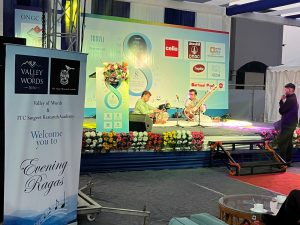
As the festival continues tomorrow, attendees can look forward to another dynamic lineup of sessions, workshops, and performances. With a robust schedule featuring celebrated authors, insightful discussions, and engaging cultural showcases, the event promises to deliver memorable experiences. VoW remains steadfast in its mission to promote literature and foster a deeper understanding of diverse narratives. Attendees can expect to immerse themselves in thought-provoking dialogue, creative expression, and the vibrant spirit of Uttarakhand’s cultural heritage. The festival’s enduring legacy as a platform for innovation and inclusivity continues to grow stronger with each passing year.

